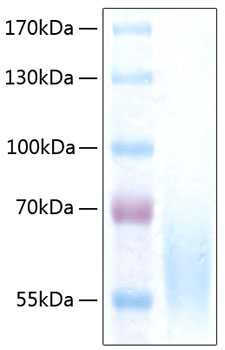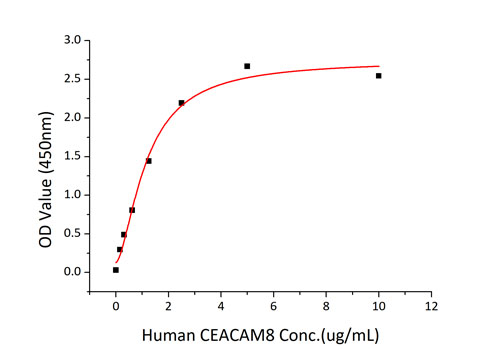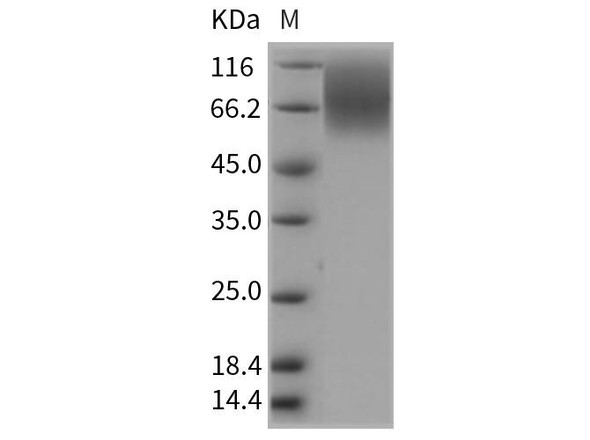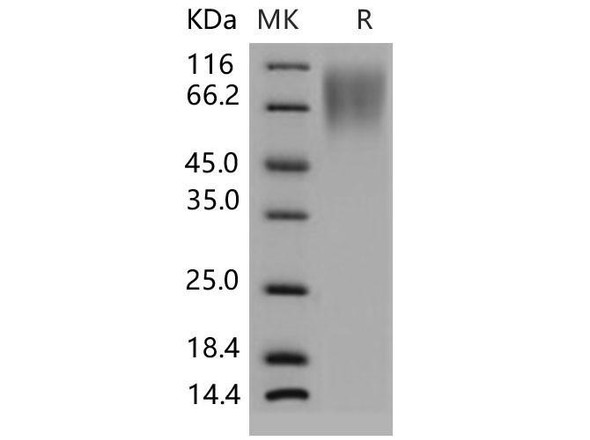The secreted recombinant human CEACAM1 comprises 405amino acids with a molecular weight of 45 kDa. The apparent molecular mass of recombinant human CEACAM1 is about 65-85 kDa in SDS-PAGE under reducing conditions due to glycosylation.Carcinoembryonic antigen-related cell adhesion molecule 1 (CEACAM1) is also known as Biliary glycoprotein 1 (BGP1), CD66a belonging to the immunoglobulin superfamily or CEA family. CEACAM1 /CD66a contains three Ig-like C2-type (immunoglobulin-like) domains and one Ig-like V-type (immunoglobulin-like) domain. CEACAM1 is a surface glycoprotein expressed on various blood cells, epithelial cells, and vascular cells and was described as an adhesion molecule mediating cell adhesion via both homophilic and heterophilic manners, and was detected on leukocytes, epithelia, and endothelia.The carcinoembryonic-antigen-related cell-adhesion molecule (CEACAM) family of proteins has been implicated in various intercellular-adhesion and intracellular-signalling-mediated effects that govern the growth and differentiation of normal and cancerous cells. Studies have revealed that CEACAM1 performs actions in multiple cellular processes including tissue differentiation, angiogenesis, apoptosis, metastasis, as well as the modulation of innate and adaptive immune responses.








